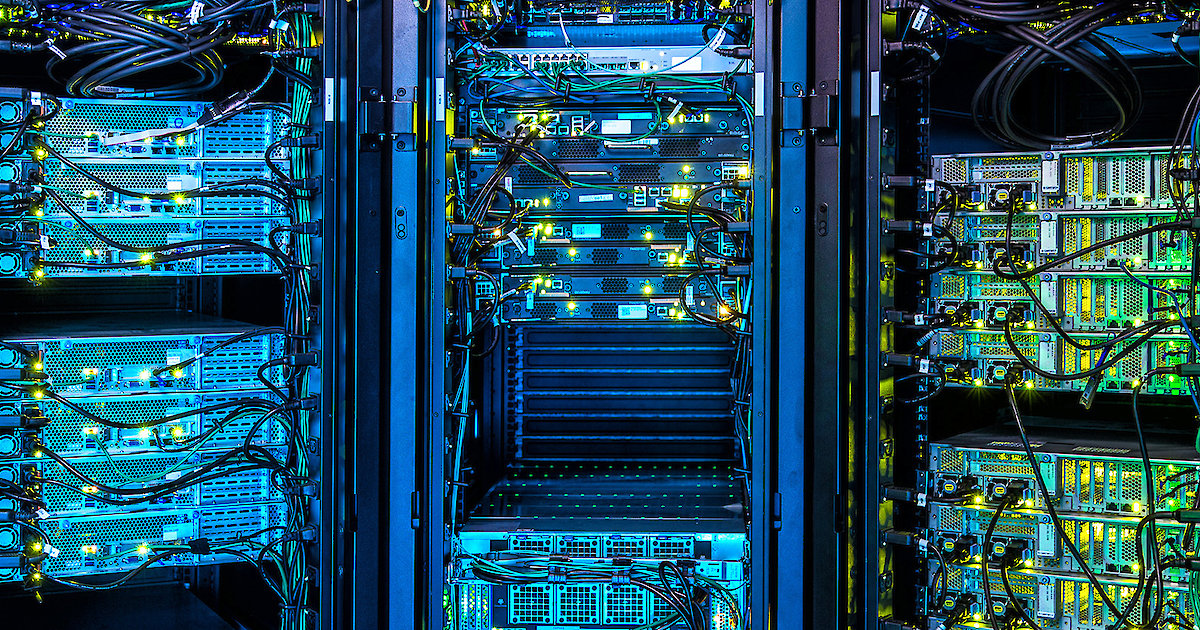Introduction
Welcome to the world of IP addresses! If you’ve ever wondered what those unique numbers are that identify your device on the internet, you’re in the right place. In this article, we’ll be exploring the concept of IP addresses and specifically focusing on one type: the public IP address.
An IP address, or Internet Protocol address, is a numerical label assigned to each device connected to a computer network. It serves as a unique identifier, allowing devices to communicate and exchange data over the internet. Every website, computer, smartphone, or any other internet-connected device has its own IP address.
Within the realm of IP addresses, there are two main types: public and private. In this article, we’ll be delving into the world of public IP addresses and diving deeper into their significance in the online ecosystem.
So why is the public IP address important? How can you find your own public IP address? Is it safe to share? We’ll answer all these questions, and more, as we explore the exciting world of public IP addresses.
So sit back, relax, and join us on this journey to discover the role and importance of your public IP address in the vast network of the internet.
What is an IP Address
An IP address, short for Internet Protocol address, is a unique numerical label assigned to each device that is connected to a computer network. It serves as a means of identifying and communicating with devices over the internet.
Think of an IP address as the equivalent of a phone number or a home address, but for devices on the internet. Without an IP address, devices would not be able to send or receive data from other devices or access websites and online services.
IP addresses are composed of a series of numbers separated by periods, such as 192.168.0.1. These numbers are used to identify both the network and the specific device within that network.
There are two main types of IP addresses: public and private. Public IP addresses are unique and are assigned by Internet Service Providers (ISPs) to devices that are directly connected to the internet. On the other hand, private IP addresses are assigned to devices within a private network, such as a home or office network, and are not directly accessible from the internet.
IP addresses are essential for the functioning of the internet. They allow devices to communicate with each other, enabling us to browse websites, send emails, stream media, and engage in various online activities.
So, the next time you open a web page, send a message, or connect to a server online, remember that an IP address is at work behind the scenes, ensuring your device is correctly identified and connected to the vast network of the internet.
Types of IP Addresses
When it comes to IP addresses, there are two main types: public and private. Let’s take a closer look at each of these types and their distinct characteristics.
1. Public IP Address:
A public IP address is a globally unique identifier assigned to a device directly connected to the internet. It serves as the public face of a device, allowing it to communicate with other devices and servers across the internet. Public IP addresses are typically assigned by Internet Service Providers (ISPs) and can be either dynamic (changing over time) or static (fixed).
Public IP addresses are crucial for hosting websites, running servers, and accessing online services from anywhere in the world. Without a public IP address, a device would be unable to establish direct connections with other devices or be accessible from the internet.
In contrast to public IP addresses, private IP addresses are used within local networks, such as home or office networks, to identify devices. These IP addresses are not directly accessible from the internet and provide a level of security and privacy for devices within the network.
Private IP addresses fall into specific ranges reserved for private networks, such as 192.168.0.0 to 192.168.255.255. This means that multiple devices within the same network can share the same private IP addresses, as they are only relevant within that network.
Private IP addresses are essential for facilitating communication between devices within a local network, allowing them to share resources, such as printers and files, and establish connections without exposing their individual identities to the outside world.
Understanding the differences between public and private IP addresses is crucial in managing and securing network connections. By distinguishing between the two, network administrators can establish appropriate security measures to protect devices and data from potential threats.
Now that we have explored the different types of IP addresses, let’s dive deeper into the importance of public IP addresses and why they are a vital component of the internet ecosystem.
Public IP Address
A public IP address is a unique identifier assigned to a device that is directly connected to the internet. It is the address that allows devices to communicate with other devices and servers across the internet. Public IP addresses are assigned by Internet Service Providers (ISPs) and are crucial for various online activities.
Every device that is connected to the internet requires a public IP address to send and receive data. When you access websites, stream media, or connect to online services, your device is using its public IP address to establish connections and communicate with servers.
Public IP addresses can be either dynamic or static. Dynamic IP addresses are assigned by ISPs from a pool of available addresses and can change over time. This means that each time a device reconnects to the internet, it may receive a different IP address. On the other hand, static IP addresses are permanently assigned to a device and do not change.
Public IP addresses play a vital role in hosting websites and online services. When you access a website, your device sends a request to the server hosting that website using its public IP address. The server then responds and delivers the requested web pages or content back to your device through the unique IP address assigned to it.
Furthermore, public IP addresses enable devices to communicate with each other across the internet. For example, if you want to connect to a remote server or establish a video conference with someone on the other side of the world, your device needs a public IP address to establish a direct connection.
In addition to facilitating communication and internet access, public IP addresses also come with certain security considerations. Since public IP addresses are directly exposed to the internet, they can be vulnerable to various cyber threats and attacks. It is crucial to implement proper security measures, such as firewalls and regular software updates, to protect devices with public IP addresses from potential threats.
In summary, a public IP address is a unique identifier assigned to a device that is directly connected to the internet. It enables devices to access the internet, communicate with other devices and servers, and host websites and online services. Understanding the significance and functionality of public IP addresses is essential for navigating the vast online world and ensuring secure and efficient internet connectivity.
Why is Public IP Address Important?
The public IP address plays a crucial role in the functioning of the internet and enables various online activities. Let’s explore why the public IP address is so important:
1. Internet Access: The public IP address is essential for devices to access the internet. It acts as the gateway that allows devices to connect to websites, online services, and other devices across the internet. Without a public IP address, devices would be unable to establish direct connections and access the vast array of resources available online.
2. Communication: Public IP addresses enable devices to communicate with each other over the internet. Whether it is sending emails, participating in video conferences, or transferring files, public IP addresses are necessary to establish direct connections between devices. They facilitate seamless communication and data transfer between devices, regardless of their geographical locations.
3. Hosting Websites and Services: Public IP addresses are crucial for hosting websites and online services. When you visit a website, your device uses its public IP address to send a request to the server hosting that website. The server then responds and delivers the requested web pages or content back to your device. Similarly, servers hosting online services, such as email servers or gaming servers, rely on public IP addresses to handle incoming connections from users.
4. Remote Access: Public IP addresses enable remote access to devices and networks. For businesses and individuals, having a public IP address allows for remote management of devices and accessing files, programs, or services from any location. It provides flexibility and convenience in managing and accessing resources remotely.
5. Online Gaming: Public IP addresses are crucial for online gaming. In multiplayer games, players connect to servers using their public IP addresses to join game sessions and interact with other players. Without a public IP address, players would not be able to join games or participate in online multiplayer experiences.
6. Internet of Things (IoT): With the rise of IoT devices, public IP addresses have become even more important. IoT devices, such as smart home systems, connected appliances, and surveillance cameras, rely on public IP addresses to communicate and interact with other devices and services over the internet. Public IP addresses enable control and management of these devices from anywhere, enhancing convenience and automation in our daily lives.
In summary, the public IP address is vital for internet access, communication, hosting websites and services, remote access, online gaming, and the IoT. It is an essential component that enables devices to connect and interact within the vast network of the internet. Understanding the importance of public IP addresses helps us appreciate their role in facilitating various online activities and interconnectedness in today’s digital world.
How to Find Your Public IP Address?
Knowing your public IP address can be useful for various purposes, such as troubleshooting network issues, setting up remote access, or verifying your internet connection. There are several methods you can use to find your public IP address:
1. Use a Search Engine: The easiest way to find your public IP address is by searching for “What is my IP address?” in a search engine. The search results will display your public IP address at the top of the page. Simply copy the address or make a note of it for reference.
2. Check with Your Internet Service Provider (ISP): Your ISP assigns you a public IP address, so they have the information readily available. You can contact your ISP’s customer support and ask for your public IP address. They will be able to provide you with the necessary details.
3. Use an IP Address Lookup Website: There are websites specifically designed to provide information about IP addresses. You can visit one of these websites and it will display your public IP address along with additional details like your location and ISP information.
4. Check Your Router’s Settings: If you have access to your router’s settings, you can log in to the administrative panel and look for the WAN or public IP address. Different router models may have varying interfaces, so refer to your router’s manual or documentation for instructions on finding the public IP address within the settings.
5. Use Command Prompt or Terminal: For more technical users, you can find your public IP address by using the command prompt or terminal on your computer. Open the command prompt (Windows) or terminal (Mac or Linux) and type “ipconfig” (Windows) or “ifconfig” (Mac or Linux). Look for the IPv4 address listed under your network adapter, and that will be your public IP address.
Remember that your public IP address may change over time, especially if you have a dynamic IP address assigned by your ISP. If you need a static IP address, you will have to contact your ISP to inquire about the availability and potential cost for obtaining one.
Now that you know various methods to find your public IP address, you can easily retrieve this information whenever needed. Whether you are troubleshooting network issues or setting up remote access, having knowledge of your public IP address will come in handy.
Is Your Public IP Address Safe?
When it comes to the safety of your public IP address, it’s important to understand both the risks and measures you can take to protect yourself online.
1. Exposure to Potential Threats: Your public IP address is visible to anyone on the internet, which means that it can be targeted by malicious entities. Hackers or cybercriminals may attempt to exploit vulnerabilities in your network or device through your public IP address.
2. Invasion of Privacy: Your public IP address can be used to track your online activities and potentially trace them back to you. This could raise concerns about your privacy, especially if you value anonymity online.
3. Limited Access Control: If someone is aware of your public IP address, they can attempt unauthorized access to your network or devices. This is why it is crucial to secure your network and devices with strong passwords, firewalls, and other security measures.
4. Targeted Attacks: Public IP addresses associated with high-profile websites or services may attract targeted attacks. Hackers may focus their efforts on these addresses in an attempt to disrupt services or gain access to sensitive information.
5. Network Vulnerabilities: An insecure network can expose your public IP address to potential attacks. Unsecured Wi-Fi networks or outdated network equipment may make it easier for cybercriminals to compromise your network security.
To enhance the safety of your public IP address, here are some measures you can take:
a. Use a Firewall: A firewall acts as a barrier between your network and potentially harmful external entities. Enable a firewall on your router or use a software firewall to control incoming and outgoing connections.
b. Keep Software Updated: Regularly update the software on your devices, including operating systems, applications, and firmware. Updates often include security patches that fix vulnerabilities and protect against potential threats.
c. Use Strong Passwords: Set strong, unique passwords for your network equipment and devices. Avoid using default or easily guessable passwords, and consider using a password manager to securely store your credentials.
d. Secure Your Wi-Fi Network: Enable WPA2 or WPA3 encryption on your Wi-Fi router to secure your network. Use a strong, unique password for your Wi-Fi network and avoid broadcasting the network name (SSID).
e. Use Virtual Private Network (VPN): A VPN encrypts your internet traffic and masks your IP address, providing an additional layer of security and privacy. Consider using a reputable VPN service when accessing the internet, especially on public Wi-Fi networks.
f. Monitor Network Activity: Regularly check your network activity logs for any unusual or unauthorized connections. Monitor your devices and network for any signs of suspicious behavior.
While you cannot completely eliminate the risks associated with your public IP address, implementing these security practices can significantly enhance your online safety and mitigate potential threats.
Remember to stay vigilant, educate yourself about online security best practices, and regularly update your security measures to protect your public IP address and ensure a safer online experience.
Conclusion
The public IP address is a crucial component of the internet infrastructure, serving as a unique identifier for devices connected to the internet. It facilitates communication, enables internet access, and allows for various online activities such as hosting websites, remote access, and online gaming.
Understanding the importance of your public IP address empowers you to navigate the online world more effectively and take appropriate security measures. While your public IP address exposes you to potential risks, such as targeted attacks or privacy concerns, implementing security measures like firewalls, strong passwords, and regular updates can significantly enhance your online safety.
It is also essential to stay informed about the latest trends in online security and privacy protection. By keeping up with these developments, you can take proactive steps to safeguard your public IP address and protect your devices and data from potential threats.
In a rapidly evolving digital landscape, the public IP address remains a fundamental aspect of our internet experience. It connects us to the vast network of devices and services, making communication, information sharing, and online collaboration possible.
So the next time you browse the web, host a website, or engage in online activities, remember the essential role that your public IP address plays in enabling these experiences. Embrace the opportunities and benefits that the internet offers, while prioritizing the security and privacy of your public IP address.
By understanding and respecting the significance of your public IP address, you can confidently navigate the online world and make the most of the interconnected digital landscape we live in today.

























